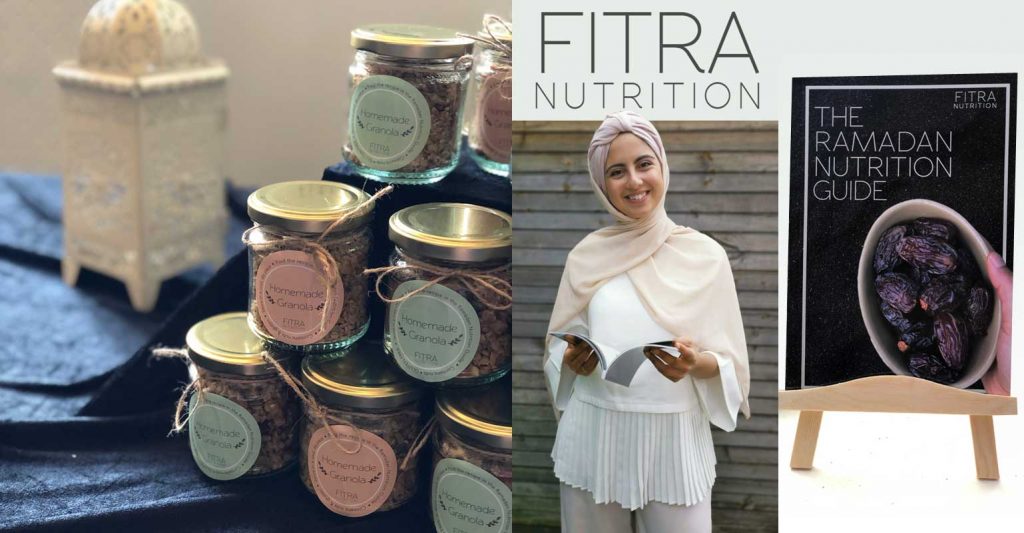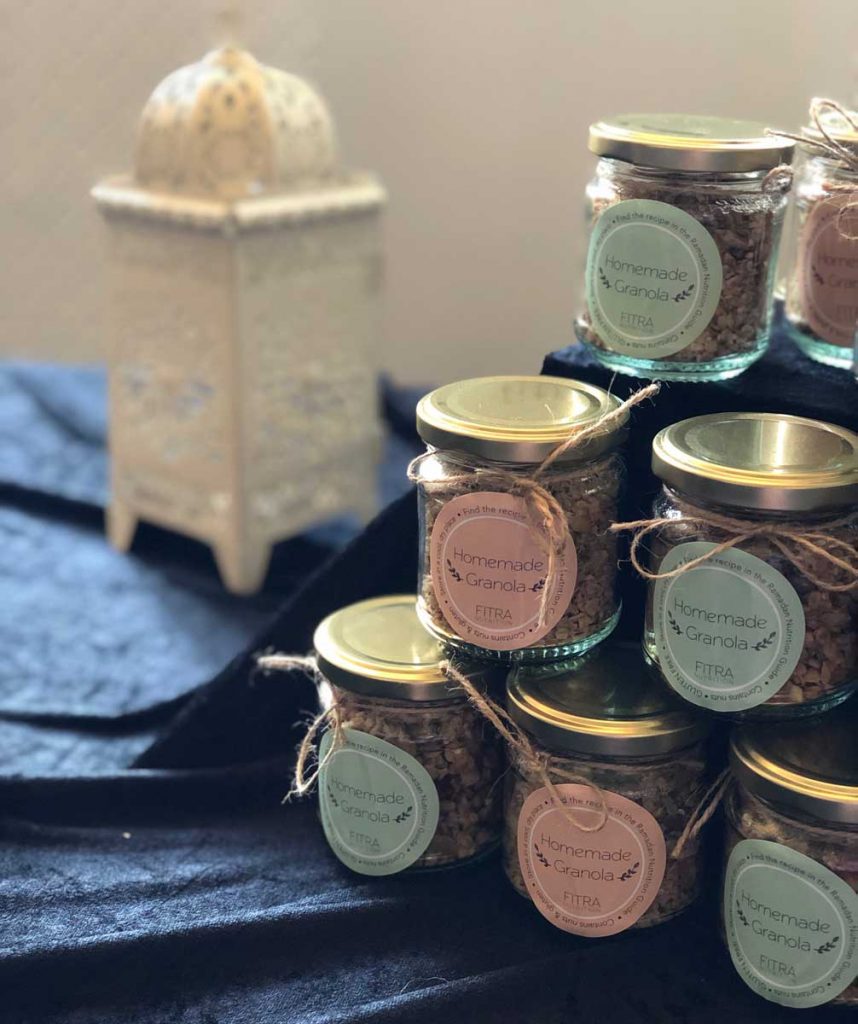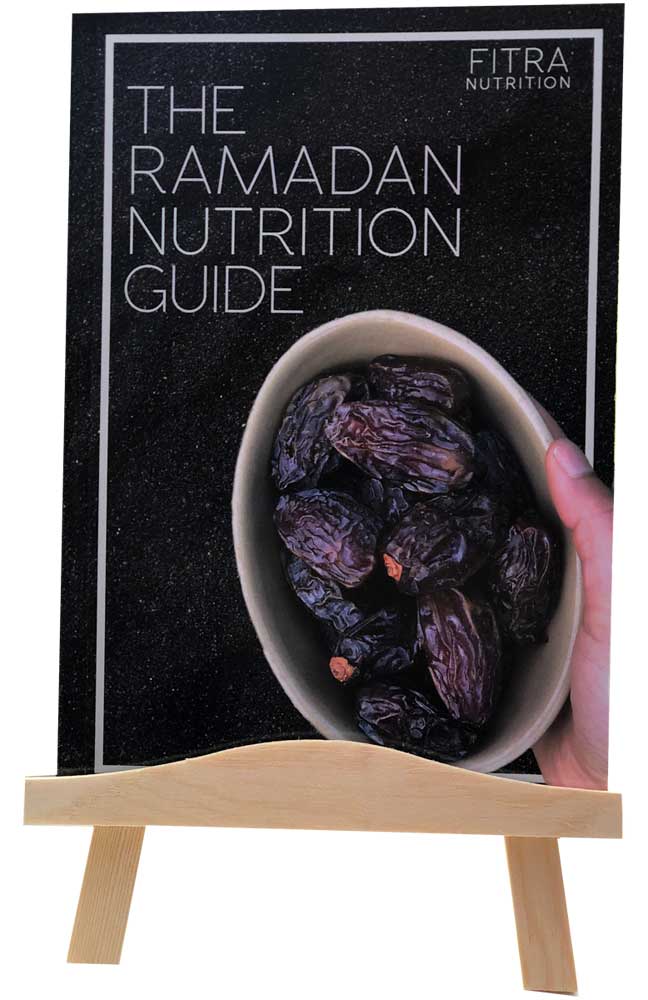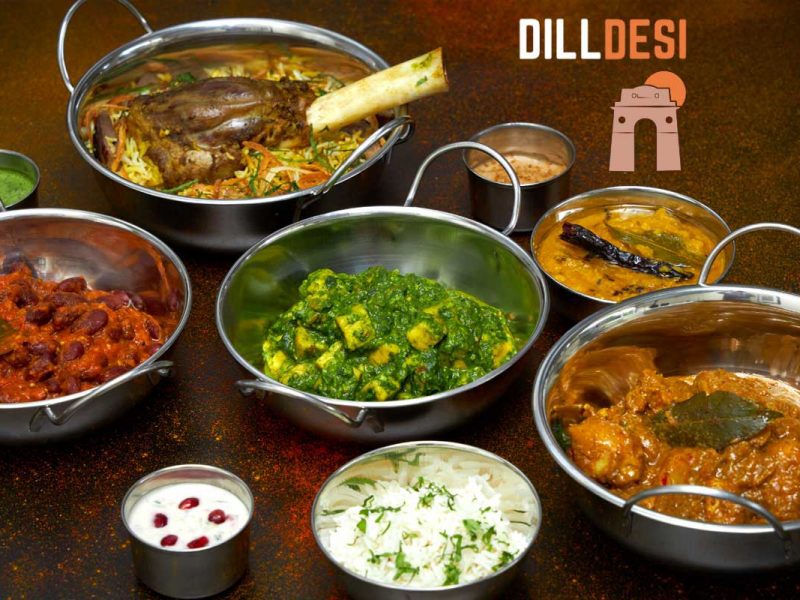We interview the founder of Fitra Nutrition, Hend Ahmed
Is there such a thing as the perfect diet? Not according to Hend Ahmed, founder of the popular educational website Fitra Nutrition.
In her view, since “we are all individuals with different genes, health statuses, activity levels, life circumstances, environmental factors and life goals”, there can’t be a one-size-fits-all diet.
Instead what’s required, is an “holistic and preventative approach, with the aim of allowing individuals to achieve optimum health and wellness”.
For her “being in optimal health isn’t about being perfect – it’s about exploring and figuring out what complements you and makes you feel your best”.
Fitra takes a holistic and preventative approach with the aim of allowing individuals to achieve optimum health and wellness.
And it is this understanding that motivated her to set up Fitra Nutrition, a platform which aims at “highlighting evidence-based research, developments and thoughts in nutrition, drug/nutrient interactions, stress management and other areas of lifestyle”.
There was a time, however, when Hend practiced an entirely different approach as a pharmacist where focus was more towards treating symptoms than identifying the root causes of a given problem.
But she soon became disillusioned with the obvious limitations of this approach, and so decided one day to shift her focus towards prevention rather than short-term cure by enrolling at the College of Naturopathic Medicine in Manchester.
With Hend now preparing to graduate as a qualified Naturopathic Nutritional therapist in September, we wanted to find out more about her philosophy on health and diet, her educational platform Fitra Nutrition, and her plans for the future.
FtLion: You run the blog Fitra Nutrition. Tell us more about what that’s all about and what your aim was in establishing it?
As a pharmacist, my approach has been mainly focused on symptomatic medicine. I witnessed that treating symptoms do not alleviate the root cause problem or establish the causes of the imbalances. So I shifted my focus towards prevention and understanding health as a whole. That’s why I created Fitra Nutrition. Implementing preventative medicine – such as adjusting our nutrition and lifestyle – can be one of the sustainable ways to prevent and improve certain chronic diseases.
Within the nutritional science field, we focus on a more personalised approach to health. We are individuals. We are genetically and bacterially different from each other. This means that our bodies have their own unique set of requirements that need to function at an optimum level. Because what we eat and how we function at a biochemical level directly impacts how we feel – mentally, emotionally and physically – this differs from person to person.
By studying and implementing nutritional sciences, this will aid me in reaching people earlier and in more meaningful ways; before they get to the stage of needing medication.
Fitra is the Arabic word for ‘natural disposition’, in other words, the natural condition of the human being.
FtLion: On your Instagram account, you refer to what’s known as “evidence-based nutrition”. What does that mean and what evidence are you citing?
Evidence-based nutrition is systematically reviewing and using clinical research findings. By educating individuals with scientific evidence-based nutritional information, I hope to ultimately create empowerment. When individuals are equipped with the right information and good education, they will be empowered to take responsibility and be in control of their own health and well-being. This is the real change.
FtLion: According to your understanding, what is the relationship between one’s Fitra (natural disposition) and nutrition?
Fitra is the Arabic word for ‘natural disposition’, in other words, the natural condition of the human being. In the past few years, our diets have changed drastically. Since we live in a more fast-paced and stressful environment, the availability of ultra-processed food has also become more common, which again ultimately affects our food choices. If we go back into our ‘Fitra’ state – the natural way of living – we will become more balanced in our lives.
FtLion: You’ve also sold homemade Granola? How does your version differ from the variety one might find at the local supermarket, for example?
Our homemade granola* contains no refined sugars and is made with simple real wholefood ingredients like nuts, seeds, coconut, oats, spices and honey. Homemade granola is one of those things that has the feel of dessert – without being dessert! It’s nutty, warm, toasty and honey-filled goodness. Buying store-bought granola often contains refined sugars, additives and preservatives. Another advantage of making homemade granola is that it will make your kitchen smell AMAZING.
*Homemade granola recipe is in our Ramadan Nutrition Guide.
FtLion: You recently wrote an eBook ‘The Ramadan Nutrition Guide’ and printed limited edition copies. Tell us what your ebook is all about and what you aim to achieve through it?
The Ramadan Nutrition Guide eBook was released to support people optimise their health during the month of Ramadan. The guide has the highest quality evidence-based information with over 75 pages. It includes foods we should eat; foods we should limit and why; what our iftar plate should look like; and how to combat common struggles we face, such as dehydration, tiredness, heartburn and sweet cravings. We also included meal recipes for suhoor and iftar (and of course some desserts).
Fasting in Ramadan is the perfect opportunity to regain control of our mind and body. We will begin to gain insight and become more self-aware. We will start to realise how reactive we have been to the environment, and will allow us to gain clarity and capability to shift our lives towards a more positive direction.
FtLion: Since the eBook is about healthy eating in Ramadan, what would be your top five foods to eat when fasting, as well as outside of fasting, to maintain one’s health?
Firstly, I want to emphasise that no ONE food is inherently good for us, as no individual food is nutritionally whole, but it is the COMBINATION of foods that make up our overall diet that is vital for us. Secondly, when we think of food, we should think of food as fuel for our day and a healing for our life. Think of food as a way to connect with family and friends.
With that being said, we should aim for an inclusive eating style that incorporates a lot of vegetables, complex carbohydrates (e.g. brown rice, sweet potato and oats), good quality protein (e.g. eggs, chicken, lentils, chickpeas, beef, lamb) and good healthy fats (e.g. avocado, nuts and seeds, olive oil, oily fish and chia seeds).
I want to emphasise that no ONE food is inherently good for us, as no individual food is nutritionally whole, but it is the COMBINATION of foods that make up our overall diet that is vital for us.
FtLion: And what would be your top five foods to avoid and the reasons why?
It’s important to have a balanced and moderate approach on what and how much we eat to help us ensure we feel nourished through our mind, body and spirit.
Foods to limit include: simple/refined carbohydrates (e.g. sugars, white bread, croissants, cakes, pastries, sugar-sweetened beverages) as they are low in fibre, vitamins and minerals. In addition, numerous studies show that refined carbohydrate consumption is associated with health problems like obesity and type-2 diabetes. They also tend to cause major spikes in blood sugar levels, which leads to a subsequent crash that can trigger hunger and cravings for more high-carb foods.
Another food we should try to limit are fried foods. Fried foods are often cooked in processed vegetable or seed oils. When heated, these oils can form trans fats, which are associated with an increased risk of many diseases, including heart disease, cancer, diabetes and obesity.
FtLion: What general food guidelines would you give anyone looking to continue living a healthy lifestyle once Ramadan is over?
This body is given to us as a gift. We need to nurture and look after it as that’s the only one we have and will ever get. As you know, we obviously need food to survive and properly function. But the quality of the food we eat and most importantly, the nutrients it contains, is what determines whether we simply survive, or thrive.
Eating whole, nutrient-rich foods is one of the best ways we know to optimise our health and well-being. Eat a wide variety of colourful vegetables, complex carbohydrates, healthy fats and good quality protein. These are nutrient-dense foods which tend to be more satiating (makes us feel fuller), and have more fibre and water. Try to minimise your intake of sugar and other sweeteners, industrial seed oils, and processed and refined food and snacks.
You have the power at the beginning of every meal; you have a choice to make: how to fuel your body with the best foods. You’ll feel better, more energised and less deprived when you choose food that nourishes you from the inside out.
FtLion: You also write recipes. If there was one recipe you could choose that would best represent Fitra Nutrition, what would it be and why?
We love protein rich recipes! From personal experience, I have seen a huge difference in my satiety and energy levels after I incorporated protein in every meal. Studies show that protein is by far the most filling macronutrient. In addition, evidence shows that protein is required for the growth and maintenance of tissues. Enzymes are proteins that aid thousands of biochemical reactions in our body – lack of them can result in imbalances and suboptimal bodily function.
FtLion: What else is in the pipeline for Fitra Nutrition which our readers can look forward to?
Once I qualify as a Nutritional Therapist this September 2019, Fitra Nutrition will expand by conducting private consultations. The consultations will identify and manage root causes to health issues, deliver personalised and individually tailored nutrition intervention by using evidence-based approaches, and then to holistically support all aspects of a person’s being.
We will also expand Fitra’s educational platform – highlighting more evidence-based research, developments and thoughts in nutrition, drug/nutrient interactions, stress management, and other areas of one’s lifestyle. Our aim is to empower individuals to take control of their own health by embracing a healthy sustainable way of living.









Tarik
/
Great article! Very insightful!
18 Jun '19